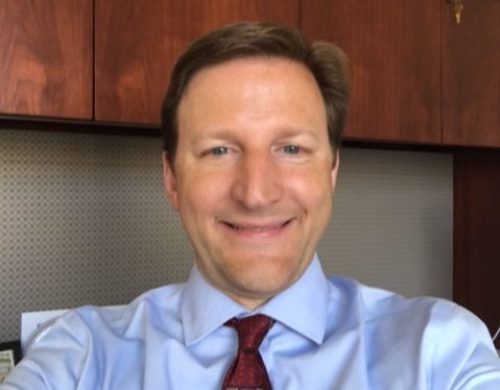New Monthly Feature: USAID Urban Champions

Each month, we will feature profiles of Urban Champions within USAID to learn about their work advancing sustainable urbanization.
Kevin Nelson is the new Urban Team Lead for USAID’s Land and Urban Office in Bureau for Economic Growth, Education, and Environment (E3). He came to USAID at the end of October 2016, after spending nearly 14 years at the US Environmental Protection Agency (EPA) working on smart growth and sustainable communities. As an urban planner, he spent his professional career addressing challenges to the built environment — how to protect human health and environment in relation to the impacts and stressors of growth and development on infrastructure, natural systems, and societal dynamics.
Why is urbanization important to USAID?
Urbanization is among the most transformative global trends affecting development today. When USAID was founded in 1961, roughly 34 percent of the world’s population lived in urban areas. Today, that figure stands at over 53 percent, and by 2030 it will rise to over 60 percent with an estimated five billion people that will live in urban areas worldwide. The global development community has recognized this trend and has devoted time, energy, and resources to discussing and addressing it. Recently, the UN Conference on Housing and Sustainable Urban Development (Habitat III) occurred, and the member states adopted the New Urban Agenda for sustainable urbanism.
USAID has a long tradition of working on urban issues that stems from the creation of its Office of Urban Development (OUD) in the 1970’s. However, despite OUD’s efforts to bring urban issues to the forefront of the Agency’s work, attention shifted to rural communities where USAID’s mission seemed to resonate most. But development trends continued to change and more people began to move to urban and peri-urban areas, bringing a newly heightened awareness of urban issues. The Agency has responded to this by investing in the new E3/Urban Team and formulating an Urban Work Group to address the growing significance of urban issues to USAID Missions around the world.
What is the role of USAID’s E3/Urban Team?
The E3/Urban Team’s role is to convene and facilitate the Agency’s work on urban issues. The team will accomplish this by identifying key stakeholders that are interested in working on urban issues and can work toward solutions in various contexts. The Urbanization Trends Work Group serves as a good starting point for raising these issues. Moving forward, the E3/Urban Team will identify ways to work with Missions in a way that acknowledges core issues inherent to their work (food security, climate resilience, and infrastructure, etc.) and then demonstrate how an urban lens addresses each of these specific issues.
Another key role is to create a path for institutionalizing urban issues within existing and revised program evaluation mechanisms. By creating this connection, it will become easier for stakeholders to realize the importance of urbanization and will position urban work within the agency as a deliberative action.
What types of urban programs is USAID supporting?
The E3/Urban Team is supporting work to illustrate the impact urban issues have on broader work of the Agency. Over the next five years, our portfolio will consist of work in the following sectors:
- inclusive and transformational economic growth, including for youth,
- accountable governments delivering equitable services, with a focus on women and other marginalized groups,
- resilient systems in the face of conflict, epidemics, climate change, food insecurity, and disasters.
To advance this work, the E3/Urban Team offers urban assessments to Missions that demonstrate how solutions to poverty reduction and community stabilization are rooted in urban development. Engagement like this helps advance partnerships and networking opportunities that allow us to learn from each other and address issues in creative and effective ways.
What do you see as important trends shaping the future of international urban development? What will USAID’s role be?
Much has been done recently to develop and articulate an agenda that acknowledges the development issues that the world faces, particularly the New Urban Agenda. To continue to make progress, we must acknowledge the interrelatedness of governance, education, health, fiscal and resource management, and climate change, among others. From there, we must devise plans that address these issues in a comprehensive manner instead of through singular actions. Resources will continue to be limited, so the more we can do in an integrated manner, the better.
To contact Kevin or the E3/Urban Team for more information, email urban@usaid.gov.

